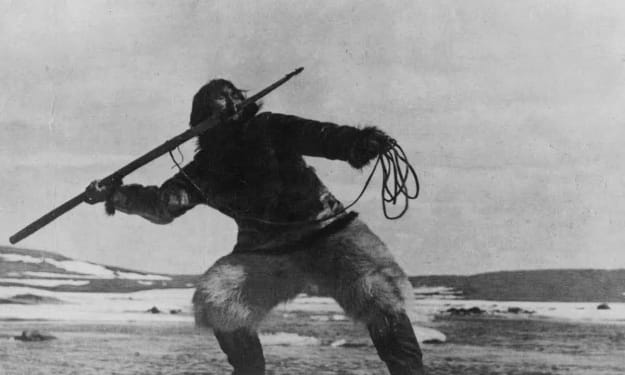How America Almost Ruined Aardman Animation
Staying British in Aardman Animation: A Look at Britain’s Most Prominent Animating Studio

Wallace and Gromit still to this day stand as Aardman’s crowning achievement; an innovative animated duo that would not only become pop culture icons within British society, but instead icons the world over. The eccentric Northern inventor, with a fondness for Wensleydale cheese and his smart silent dog, has been said to have done “more to improve the image of the English world-wide than any officially appointed ambassadors” (Marriott, 2015). The stories of Wallace and Gromit could quickly be excused as being ripped from the pages of a Hollywood DreamFactory script—Missions to the moon, robotic trousers and humanistic animal spies. Despite this, the truth and Britishness of Aardman’s claymation films doesn’t come from the plot, but instead the feel of their cosy terrace house, cups of warm tea and the evident love for a cheesy snack, almost a revival of the traditional links to nine Nineteenth Century satirical cartoons; satirising the truthful stereotypes of the modern (and particularly Northern) Brit (Oxford, 2018).
Aardman had to be careful that Wallace and Gromit didn’t become subject to exploitation. Just like any other popular commodity, the duo ran the risk of culturally shifting when their films began to receive critical and economical attention on the global stage. Williams (1980) suggests ‘British film-making is caught between Hollywood and Europe, unconfident of its own identity, unable to commit or develop strongly in either direction”; in this case, Wallace and Gromit are somewhat of an anomaly, unapologetically British since its first inception; however, the franchise almost did see its identity shift, not in a further European direction, rather an attempt to Americanise the beloved Brits. In December 1997, Aardman and DreamWorks partnered to co-finance and distribute Chicken Run (2000). Aardman would go own to later sign a $250 Million deal with DreamWorks to produce four more animated projects over a twelve-year period. Ultimately the deal didn’t last and the studios terminated their contract in January 2007, stating that creative differences were the reason for doing so (Tobin, 2008).
Each animated project released during this period is prime for an analysis, Chicken Run (2000) was the first film released during the Aardman/DreamWorks deal and in many ways, highlights itself as a singularly British film. Within a production context, the talent is almost all exclusively British—the production company, directors, composers, editors and the cinematographer. The cast is, however, the first parting from British exclusivity, seeing Mel Gibson play the role of the laid-back American cockerel Rocky Rhodes. The character itself does stray away from Aardman’s successful formula, the film continually pokes fun and questions modern American stereotypes using Rocky; pride, arrogance and humility. However, it is the first time Aardman abandons the exclusiveness of Britishness within one of their projects. Similarly, one must point out the comedy in making, essentially, the main protagonist of the World War 2 caper an American who goes on to save the British.
After a ten-year absence, Wallace and Gromit returned in the aptly titled Wallace & Gromit: The Curse of the Were-Rabbit (2005)—a film that was hugely successful critically, winning the Academy Award for best-animated picture. Wallace’s and Gromit’s latest adventure didn’t come without controversy though; the Americanisation of the British whizzes was pushing forward behind the scenes. Many scholars have described British Cinema as “Janus-faced” (Iris,B 1924), and Wallace and Gromit creator Nick Park seems to suggest that his franchise would have been described as such; “DreamWorks tried to make Wallace and Gromit adopt American culture” (Tobin, 2008). Obviously, a Janus-faced Wallace in Gromit would be extremely problematic for Aardman, the duo share the same level of credence as numerous other British film icons, the Americanisation of James Bond, Mr. Bean or Harry Potter would all warrant similar critical responses (Garrahan, 2007). At the heart of any Wallace and Gromit movie are the characters and the British humour, as well as the physiognomies and nuances of said characters. Ultimately, you’d be asking the audience to change everything they know about their ‘familiar friends,’ as a British import the pair should be celebrated for their culture before being asked to change. An American hypothetical could offer some further weight as to why this would be so unwelcome. Let’s propose that The Simpsons creator Matt Groening was pressed to make Homer Simpson trade his love for doughnuts to cheese and crackers after the BBC purchased the rights to the animated show. The removal of the doughnut would mean so much to the show, the doughnut being a proudly cherished American designed treat; an iconic prop to American everyman in Homer Simpson.
The final film of the Aardman/DreamWorks agreement spotlights itself as the biggest departure to date, Flushed Away (2006) was critically Aardman’s worst film to date, and perhaps even sadder was its failure to reap any commercial rewards. The departure comes in Aardman compromising in converting the film into a CGI, a quicker process but not necessarily a cheaper one. The studio had for the first time moved away from their signature stop-motion style in favour of a computer-generated approach—associating far more with other Hollywood Animation Studios at the time such as Disney, Pixar and DreamWorks itself. The stop-motion animation had been synonymous with Aardman since the beginning and further had been somewhat of a symbol of British animation in a global context; the wonderful precise plasticine aesthetic being entirely distinctive in comparison to other international animated blockbusters at the time.
It would be unfair to state that the Aardman/DreamWorks partnership was objectively unsuccessful, both Chicken Run (2000) and Wallace & Gromit: The Curse of the Were-Rabbit (2005) were critically successful and still to this day spotlight themselves as some of Aardman’s crowning achievements as an animation studio. Instead we can analyse the deal with the benefit of hindsight; the slow incorporation of American themes is evident when analysing the three films as collection in order of release date; the Americanisation was a process that might have somewhat indistinct to viewers at the time, but the Janus-faced nature of Aardman was fully spotlighted in its move computer-generated animation—which ultimately led to the former revolutionary staple of British animation feeling conventional—simply modest in a line-up of juggernaut American animated pictures presenting the same aesthetic design.
One could argue that the attempted Americanisation of Aardman has still affected the studio to this day, after having a global spotlight on the company they have never reached the same financial success as they did with films early in the DreamWorks deal. Shaun the Sheep (2015) was without a doubt a return to the Britishness of Aardman’s previous work, and having the same pioneering feel like their older work—the film being, essentially a silent picture. Critically too, Shaun the Sheep was praised but never reaped the same financial rewards, feeling far more independent than animated American Blockbuster. Perhaps global audiences were more wiling to accept a product that featured a cultural shift rather than a product that embraced one cultural so intensely.
About the Creator
Connor Luke Simpson
amateur filmmaker - will post my ramblings about film and television here from time to time. find me at @RealConnorLuke on Instagram, Facebook and Twitter.






Comments
There are no comments for this story
Be the first to respond and start the conversation.